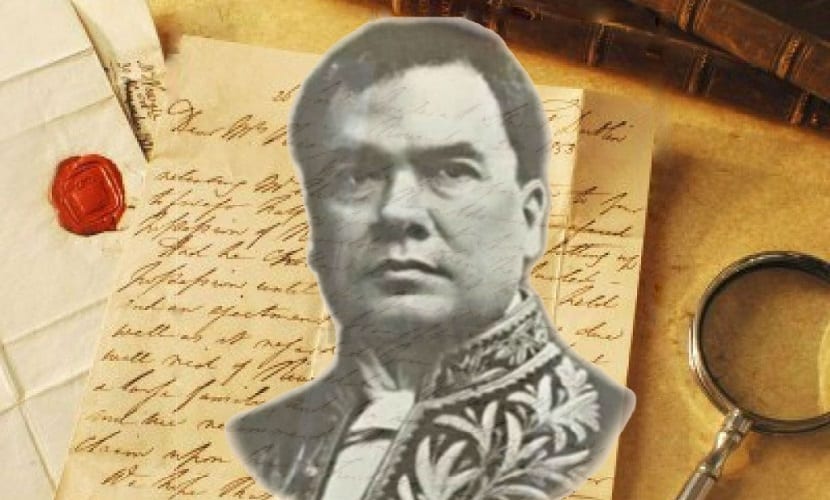
Are you looking for a biography of Rubén Darío? The Nicaraguan Rubén Darío was one of the Spanish-American poets who most he revolutionized the rhythm of Castilian verse with his poetry. It could also be said that with him the modernist current, being himself the main promoter of it.
Rubén Darío was not exactly that name. His real name was Happy Rubén García Sarmiento, but he took the surname of Darío because it was with the nickname that his father was known. Rubén began to write out of habit, as if writing poems were something normal at that time and in his environment (elegies to the deceased, odes to victories, etc.), but with an astonishing ease when composing verses with rhythms and recite them.
His life was not easy at all. He grew up around a set of family disagreements that led him to escape in writing, thus forming a certain romantic and dream ideal in all his early compositions.
Decades passed and Rubén Darío was called to rhythmically revolutionize Castilian verse and fill the world of Spanish-American literature with new fantasies.
"Strange flowers are seen
in the glorious flora of blue tales,
and among the enchanted branches, the
papemores, whose song will ecstasy of love
to bulbeles.(Papemor: rare bird; bulbeles: nightingales.) "
Brief life, intense literary career (1867-1916)
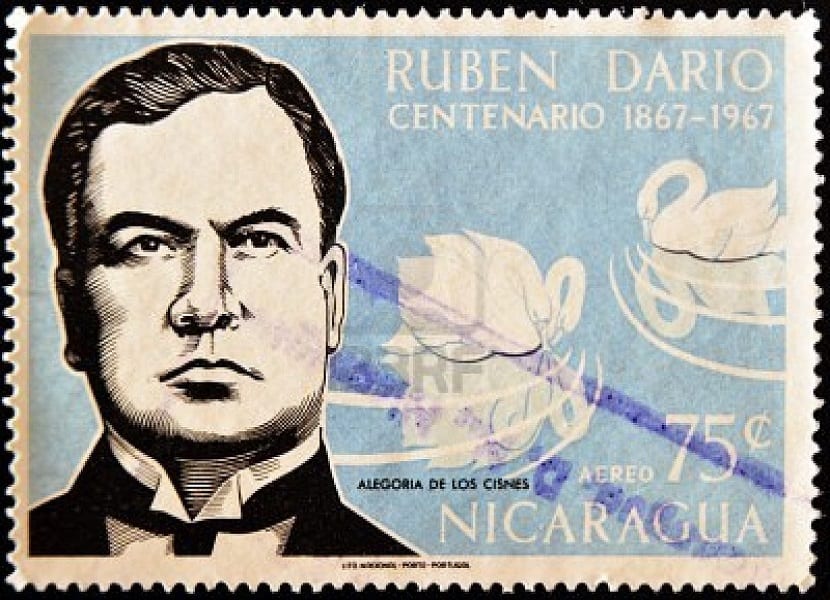
Rubén Darío was born in Metapa (Nicaragua), but only a month after his birth he moved to León, where his father Manuel García and his mother Rosa Sarmiento supposedly had a convenient but not very prosperous marriage full of unhappiness. He settled in the canteens of the place and she fled from time to time with her relatives. Chaos was present in that family and Rubén soon went to live with his mother's uncles, Bernarda Sarmiento and her husband, the Colonel Féliz Ramírez, which welcomed him very well and like true parents. Rubén did not have the affection of his mother and much less that of his father, for whom he felt a true detachment.
Studied in a Jesuit college, to which he must not have taken much affection given the ironic and mocking poems he wrote about it at that time. In his youth, he soon felt the romantic influence of Gustavo Adolfo Becquer y Victor Hugo, both considered ethenes in love, always given to romanticism and unhappy loves.
With 15 years I already had a list with the names of three girls: Rosario Emelina Murillo (according to the description, a slender girl with green eyes), a distant, blond and quite beautiful cousin who they later believed to be Isabel Swan, and finally, the trapeze artist Hortensia Buislay. But none would reach his heart as much as did the first, Rosario Emelina Murillo, to whom he dedicated a mediocre sentimental novel entitled "Emelina." He wanted to marry her, but both his friends and his relatives conspired so that he would leave the city and not make rash and unthinking decisions.
In 1882 he had an encounter with President Zaldívar, in El Salvador, of which he wrote the following: “… he was very kind and spoke to me about my verses and offered me protection; But when I asked myself what it was I wanted, I answered with these exact and unforgettable words that made the man of power smile: 'I want to have a good social position'. "
In that comment his main concern was clearly seen and that is that Rubén Darío always had bourgeois ambitions, which were always painfully frustrated.
Moving on to his Chilean stage, he also tried when he met the suicidal president Balmaceda and his son, Pedro Balmaceda Toro, with whom he maintained a friendship. His ambition to consider himself a bourgeois reached such a point who secretly ate only herring and beer, to be able to dress well and properly to his false position.
Passing a little more for his literary career, he published in Chile from 1886, "Caltrops", some poems that would give an account of his sad state of poor and misunderstood poet. In a literary contest called by the millionaire Federico Varela wrote "Autumnal", with which he obtained a very modest 8th place among the 47 who appeared. He also participated with "Epic song to the glories of Chile", on which falls the first prize that reports his first 300 pesos obtained with literature.
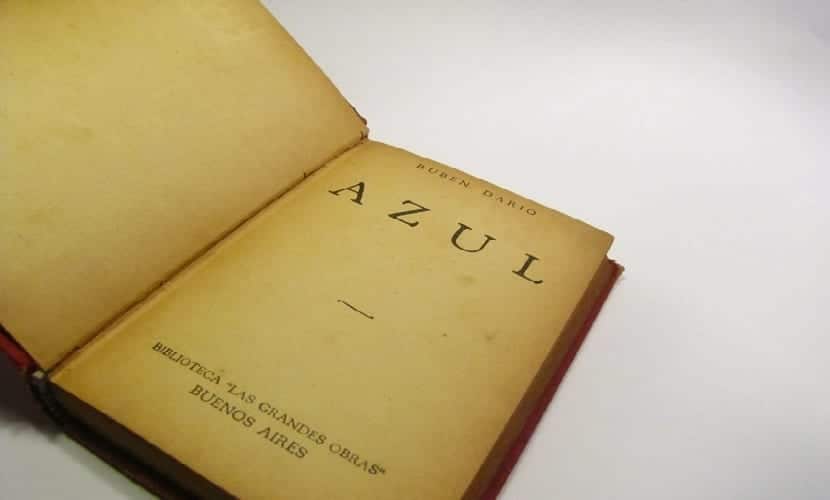
It is not until 1888 when they realize the true worth of Rubén Darío. The book that would give him this prestige would be "Blue", book praised from Spain by the prestigious novelist Juan Valera. His letters served as a prologue to the new enlarged reissue that would be published in 1890. Even so, Darío was not happy and his desire to achieve recognition and above all economic prosperity had already become obsessive. It is when he "escapes" to Europe, specifically to Paris.
Rubén Darío in Europe
He married Rafaela Contreras, a woman with the same tastes and literary hobbies. It was on the occasion of the fourth Centennial of the Discovery of America when he saw his desire to know the old world fulfilled by sent as ambassador to Spain.
He landed in La Coruña in 1892, and there he established immediate relations with the main figures of Spanish politics and literature. But when everything seemed to smile at him he saw again his happiness cut short when his wife died suddenly in early 1893. This tragic event led him to revive his already fondness for alcohol.
It was precisely in that state of intoxication that He was forced to marry Rosario Emelina Murillo. Do you remember her? That slender, green-eyed girl whom he adored as a young man. She did not behave well with Rubén, since she agreed on a plan with her brother for Rubén Darío to marry her at gunpoint, being she already pregnant with another man. They got married on March 8, 1893.
Rubén Darío resigned at first, but did not consent to live in such a deception and fled when he could from that false marriage. Arriving in Madrid where he did meet a good woman, of low condition, Francisca Sanchez, maid of the poet Villaespesa, in which he did find sweetness and respect. In one of his poems he dedicated words like these to him:
"Be careful of the pain you knew
and elevate you to love without understanding ”.
With her he traveled to Paris, after living for a few years in Buenos Aires. Paris is just the start of an enthusiastic amount of travel (Barcelona, Mallorca, Italy, War, England,…). It is in this period that he writes his most valuable books: "Songs of life and hope" (1905) "The wandering song" (1907) "The autumn poem" (1910) and "The gold of Mallorca" (1913)
You can see the difference between the writing of these last books, in which jokes, flirtation, jokes and an exultant spirit could be found, compared to his first writings which were full of pain and disappointment. Here is an example from his book "The gold of Mallorca":
"Majorcan women wear a
modest skirt,
Headscarf and braid
in the back.
This, the ones that I have seen, in passing,
Of course.
And those who do not wear it do not get angry,
For this".
The time of the retreat
Mallorca was a trip that he did more for his delicate state of health than for any other reason. Despite the good care that his then wife Francisca gave him, the poet was unable to emerge afloat.
He never achieved what he wanted from the beginning, that desired good social position that he sought with great effort from the beginning, consequently leading a modest life. This is evidenced by a gruesome episode he had with Alexander Sawa, who many years before had served him in Paris as a guide to get to know some neighborhoods of the city. Sawa was a poor old blind bohemian who had devoted his life entirely to literature. He demanded from Rubén the meager sum of 400 pesetas to finally see what is today his most valuable work published, "Illuminations in the shadow". But Rubén was not around the task of providing him with said money and he played the disregard. Sawa went from pleading to outrage, even demanding payment for alleged services rendered. According to Sawa himself, he was the "black" author of some articles sent in 1905 to La Nación that were signed by Rubén Darío. Even so, Rubén would be the prologue for the book by Alejandro Sawa, already deceased when it was published.
He wouldn't make a lot of money but if he won a great recognition by the majority contemporary Spanish-language writers.
The biography of Rubén Darío ends in 1916, shortly after returning to his native Nicaragua, Rubén Darío passed away. This news filled the Spanish-speaking intellectual community with great regret. Manuel Machado, a Spanish poet very literary influenced by Rubén, dedicated this epitaph:
"Like when you traveled, brother,
You are absent,
and fills you with the loneliness that awaits
your return ... will you come? While,
spring
is going to cover the fields, to unleash
the fountain.
In the day, at night ... Today, yesterday ...
In the vague
late, in the pearl dawn,
your songs resonate.
And you are in our minds, and in
our hearts,
rumor that is not extinguished, fire
that does not turn off.
And, in Madrid, in Paris, in Rome,
in Argentina
They await you ... Wherever your zither wants
divine
it vibrated, its son survives, serene, sweet,
strong…
Only in Managua is there a
gloomy corner
where the hand that killed wrote
to the death:
'Come in, traveler, Rubén Darío is not here'. "
Some of his poems ...
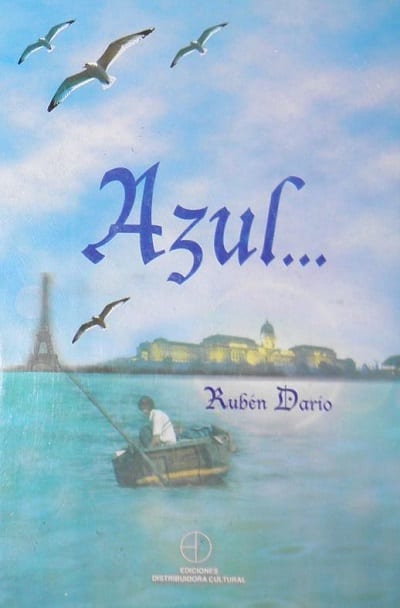
This is the selection of poems by Rubén Darío that we have made so that you know a little more about his rhythm, his verses:
Campoamor
This one with the gray hair,
like the fur of an ermine,
he gathered his childish candor
with his experience as an old man;
when you hold it in your hand
a book of such a man,
bee is every expression
that, flying from the paper,
leave the honey on your lips
and it stings in the heart.
Sad, very sad
One day I was sad, very sad
watching the water fall from a fountain.
It was the sweet and Argentine night. Cried
the night. The night sighed. Sobbed
the night. And the twilight in its soft amethyst,
diluted the tear of a mysterious artist.
And that artist was me, mysterious and groaning,
that mixed my soul with the jet of the fountain.
Nocturno
Silence of the night, painful silence
nocturnal ... Why does the soul tremble in such a way?
I hear the hum of my blood
inside my skull a gentle storm passes.
Insomnia! Not being able to sleep, and yet
Sound. Be the auto-piece
of spiritual dissection, the self-Hamlet!
Dilute my sadness
in a night wine
in the wonderful crystal of darkness ...
And I say to myself: what time will dawn come?
A door has closed ...
A passerby has passed ...
The clock has struck thirteen hours ... Yes it will be Her! ...
Mine
Mine: that's your name.
What more harmony?
Mine: daylight;
mine: roses, flames.
What a scent you spill
in my soul
if I know that you love me!
Oh my! Oh my!
Your sex melted
with my strong sex,
melting two bronzes.
I sad, you sad ...
Must you not be then
mine to death?
Timeline of the biography of Rubén Darío
And here, a brief chronological summary of what has been seen so far about the biography of Rubén Darío:
- 1867: January 18: Rubén Darío is born in Metapa, Nicaragua.
- 1887: Publish "Emelina ". Writes "Caltrops", "Otoñales", "Epic Song to the glories of Chile".
- 1888: Publica "Blue" and his father dies.
- 1891: Religious wedding with Rafaela Contreras. Their son Rubén is born.
- 1892: He travels to Spain sent by the Nicaraguan government, on the occasion of the 4th Centennial of the Discovery of America.
- 1893: Rafaela Contreras dies. He married Rosario Emelina Murillo.
- 1896: Publica "The rare" y "Profane prose".
- 1898: He traveled to Madrid as a correspondent for La Nación.
- 1900: The Nation sends him to Paris. His lover Francisca Sánchez accompanies him.
- 1905: Publica "Songs of life and hope".
- 1913: From Paris travel to Valldemosa, in Mallorca: "The gold of Mallorca" (published work).
- 1916: He died in León, Nicaragua.
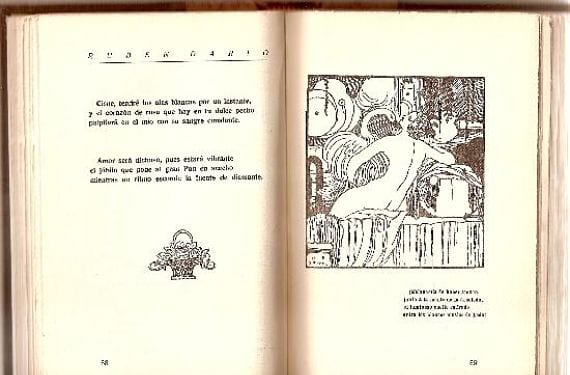
Excellent dissertation to celebrate the centenary of the death of the Prince of Castilian letters, initiator and highest representative of Latin American Modernism. Rubén Darío was called to rhythmically revolutionize Castilian verse, but also to populate the literary world with new fantasies, illusory swans, inevitable clouds, kangaroos and Bengal tigers coexisting in the same impossible landscape. It brought to a language that was in decay the revitalizing American influence and the French Parnassian and Symbolist models, opening it up to a rich and strange lexicon, to a new flexibility and musicality in verse and prose, and introduced universal themes and motifs, exotic and indigenous, which excited the imagination and the faculty of analogies.
Thank you José Antonio for your comment!
Without a doubt, we consider that Rubén Darío deserved a space on our page and we have done so. All the best!
Rubén's name was Félix, not Féliz.
Hello, good morning, the biography is very good, thanks because Ruben Dario is my favorite poet, thanks for everything.
Good biography I congratulate her for her work and contribution.
Excellent biography helped me a lot in the exam
It would be important that they publish the year in which this information was published as well as the day and month
Rubén's name was Félix, not Féliz.
Hello, very good biography. A question in what year did you make this short biography? I need to do a bibliography with this research. Could you give me the creation date of this publication please
Where can I see the date of publication of this bibliography.